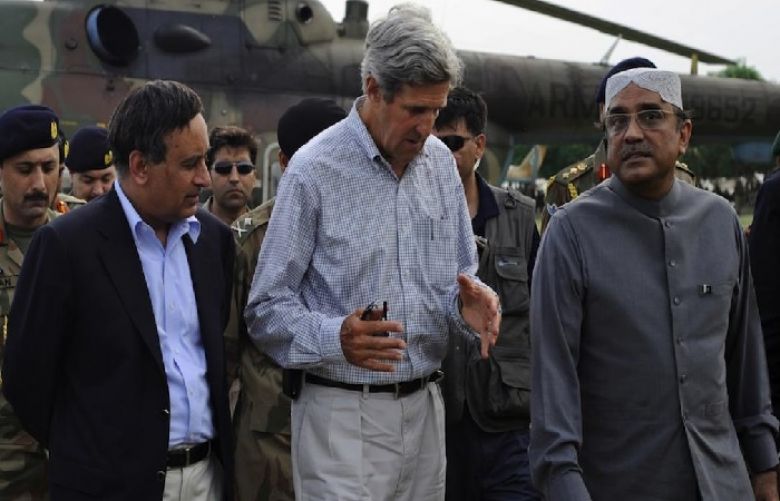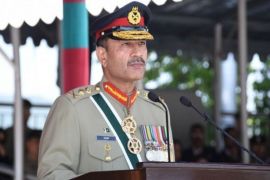The Army's public relations wing, Inter-Services Public Relations (ISPR), on Wednesday stated that the claims made by Hussain Haqqani, Pakistan’s former ambassador to the US, regarding the issuance of diplomatic visas in a recent op-ed in an American news publication "vindicate [the] stance of Pakistan's state institutions".
Views of Hussain Haqqani pub in a mainstream US newspaper esp his account on issue of visas vindicate stance of Pak's state institutions.1/2
— Maj Gen Asif Ghafoor (@OfficialDGISPR) March 29, 2017
The army's media wing further stated that: "The veracity of concerns about [Haqqani's] role in the entire issue also stands confirmed."
The veracity of concerns about his role in the entire issue also stands confirmed.
— Maj Gen Asif Ghafoor (@OfficialDGISPR) March 29, 2017
In an article published in The Washington Post earlier this month, Haqqani had defended US President Donald Trump's team's contacts with Russia during and after the 2016 US presidential elections, saying he also had established similar relations with members of the Obama campaign during the 2008 elections.
Haqqani wrote that the friends he made in the Obama campaign team were “able to ask, three years later, as National Security Council officials, for help in stationing US Special Operations and intelligence personnel on the ground in Pakistan”.
Explaining how he responded to those requests, the former ambassador wrote: “I brought the request directly to Pakistan’s civilian leaders, who approved. Although the United States kept us officially out of the loop about the operation, these locally stationed Americans proved invaluable when Obama decided to send in Navy SEAL Team 6 without notifying Pakistan.”
Navy SEAL Team 6 had flown deep into Pakistan by helicopter and killed Al Qaeda leader Osama bin Laden in his Abottabad compound on May 2, 2011.
DG ISPR Maj Gen Asif Ghafoor, who tweeted the ISPR's concise statement on the matter, seemed to also be referring to the Memogate scandal, when Hussain Haqqani's 'loyalty to the country' first became 'suspect'.
Memogate had made national headlines in 2011, when Pakistani-American businessman Mansoor Ijaz claimed to have received a message from Haqqani to deliver a confidential memo to then US Admiral Mike Mullen.
The 'memo' allegedly talked of a possible military takeover in the aftermath of the Abbottabad raid and sought 'help' from the US for the PPP government at the time in 'reigning in the military and intelligence agencies', exposing a rift between the then civilian government of Pakistan and the country's powerful generals.
However, some analysts had questioned the logic of the claims made by Ijaz, suggesting that the affair was a conspiracy to embarrass the government or remove Haqqani.
Haqqani eventually had to resign from his position following the scandal.
A judicial commission tasked with probing Memogate had, however, stated in its report that the memo was "indeed real" and authored by the former ambassador.
The commission said the purpose of writing the memo was to convince American authorities that Pakistan's civilian government was US-friendly and that it was only the civilian setup that could control the expansion of Pakistan's nuclear programme.
The report also stated that through the memo, Haqqani wanted to convince the US over the formation of a new security team and that he wanted to head the team himself.
The commission said Haqqani had 'forgotten' that he was Pakistan's ambassador to the US and accused him of violating the country's constitution.







